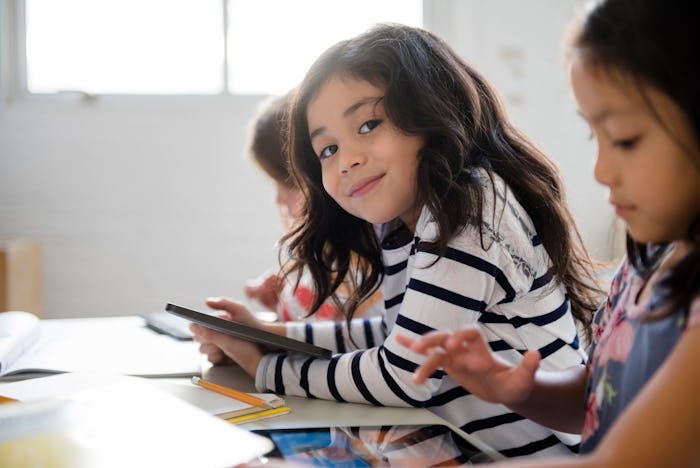Life

Are Learning Pods Only For The White, Upper Class? These Families Say Otherwise
My son starts first grade in a few weeks, and I’m scrambling to figure out what he’ll need to thrive, while maintaining my ability to make a living. The memory of crisis schooling through spring has led me, along with many other parents, to contemplate “learning pods” for their kids — that is, small cohorts of children who are taught together outside of their schools.
Up to now, much of the conversation has revolved around this being something white, upper-class families are doing (or something only they can afford to do), but in reality, the field of parents considering micro-schooling is diverse.
Lakisha Hubacek of Texas is one such parent. The Black mother of two says that while she felt prepared for the pandemic, her son’s school was disorganized and unprepared for the switch to distance learning. “I am totally unhappy with the choices our district has given us. I like to plan and there are no details yet."
Hubacek’s son is at high-risk for contracting COVID, as is her mother, who lives with them and has chronic obstructive pulmonary disease. Hubacek plans to keep her child home, and would like him to take part in a pod, but says it has been challenging to find the right fit.
Austin Walker, a Black mother and realtor in Atlanta, Georgia, has two young children, and is also looking into either entering a parent-led pod. “I think pods are a necessary evil during these times. There is a lot that is outside our control, and for working parents, this is the best option," says Walker. She sees pods as a great way to socialize children. "Joining a pod gives our kids a taste of new normal after being quarantined all spring and summer.”
Walker is concerned for the majority of families at her children’s school, who are on free and reduced lunch. “Finding pods will be a struggle for those who don’t have the means to lead a pod or pay for a teacher," she says. "While some kids will thrive, others will struggle, especially when they return back to school."
In Olympia, Washington, Dianna Torres Angulo is after a “sense of community” for her kids. Her pod will be made up of Mexican, Salvadorean, and Islander families who live in her area, and will involve using virtual learning and hands-on tutoring when needed. At the same time, she is conscious of inequities. "I’d like to see or be part of a coalition working towards providing more funding towards education for the BIPOC community,” she says.
Other individuals are also working on the ground to make pandemic pods more equitable and accessible to others. Author and educator Nikolai Pizarro de Jesus founded the Facebook group BIPOC-Led Pandemic Pods and Microschools to dispel the myth that pods are only for rich or white families by connecting BIPOC parents to one another as well as to helpful resources for their pods. Pizarro de Jesus wants to remind people that issues of inequity and inequality in education didn’t just start with the pandemic and the creation of learning pods. They've been there all along.
Mike Teng, CEO of Swing Education, recently launched a new service that matches families with teachers for their learning pods, and has been approaching school districts and other educational outfits to help connect 50,000 students (who may be unable to afford it normally) to Swing Education teachers.
In Denver, June Marcel is trying to build a public-private solution by figuring out how Denver Public Schools resources (her employer) could be used to assist families without the ability to pay tutors or teachers. Marcel’s daughter is on a 504 plan for mild/moderate hearing loss and requires assistive technology in classrooms in order to hear her teachers — something that won’t be necessary in a quiet, home environment. Remote learning shift in the spring didn’t work well for her child.
“She will be much happier and learn better with a small group of kids from home, and as parents, I think if we rotate we can make it far more sustainable than any of us trying to do it on our own,” says Marcel.
This article was originally published on